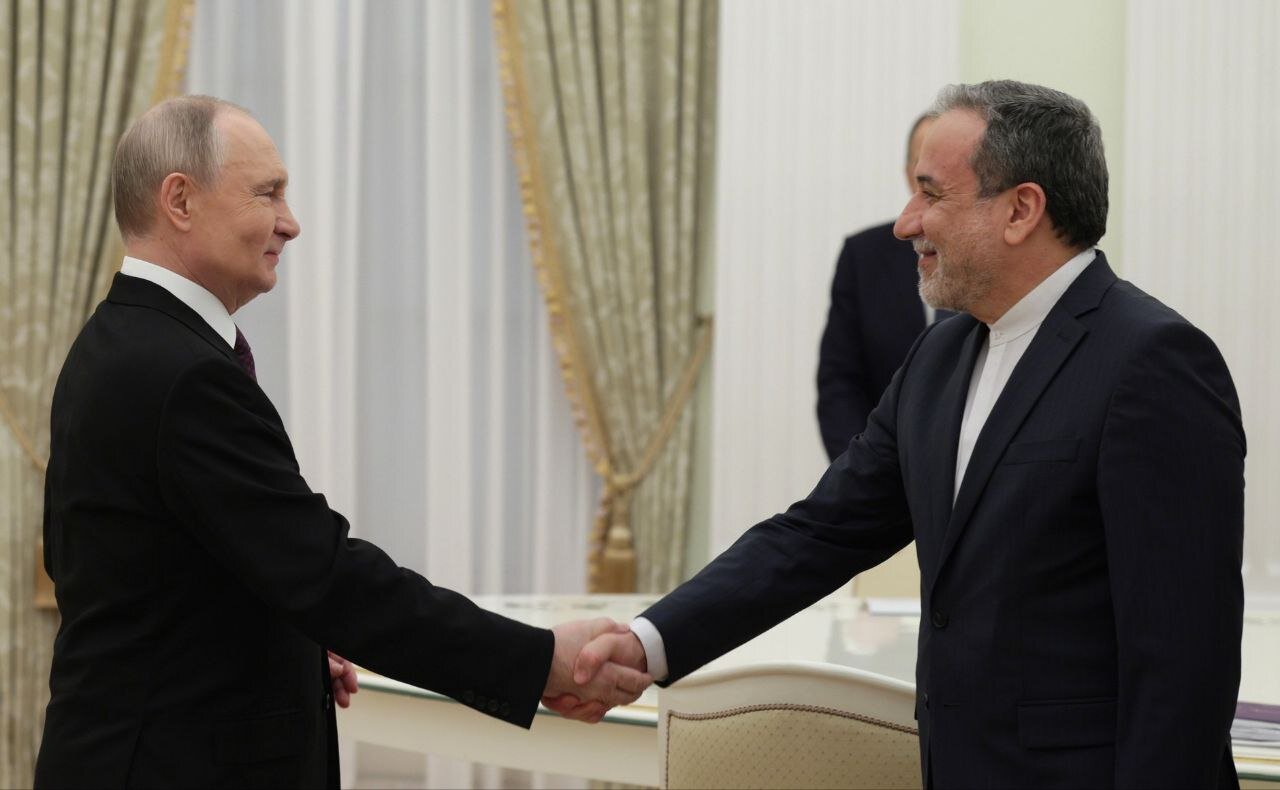Iran FM discusses bilateral cooperation regional issues in Moscow
Iran FM discusses bilateral cooperation, regional issues in Moscow
MOSCOW - Iran's Foreign Minister Abbas Araghchi made a two-day visit to Moscow on Thursday with the primary aim of delivering a letter from Leader of the Islamic Revolution Ayatollah Ali Khamenei to Russian President Vladimir Putin.

On the sidelines of a ceremony marking Army Day in Iran, Araghchi briefed reporters on his earlier meeting with Putin.
The diplomat emphasized the importance of the Leader's letter, which covered various topics including ongoing cooperation between the two nations and pressing regional issues. He noted that after reading the letter to President Putin, he provided further explanations and engaged in a detailed discussion about both countries' collaborative efforts.
The Iranian Foreign Minister highlighted the significance of addressing international developments, particularly the indirect negotiations currently taking place between Iran and the United States. He stated, "We are receiving contradictory and conflicting messages from the United States. From our perspective, what is expressed at the negotiation table is what matters."
Araghchi reiterated Iran's commitment to serious negotiations, asserting that the country's positions remain clear and unchanged. "We are completely serious in these negotiations," he said.
Araghchi also confirmed that he would participate in the second round of indirect negotiations scheduled for Saturday. He clarified that while Rome will serve as the location for these talks, Oman continues to be the host country facilitating communication between Iran and the United States.
He said multiple countries, including Russia, had offered to mediate the talks, but Iran will go on with Oman as go-between for the foreseeable future.
In a Friday meeting with Russian Foreign Minister Sergey Lavrov, Araghchi hailed the Strategic Cooperation Agreement signed by the two countries in January, and recently ratified by the Russian parliament, as game-changing.
"Recently, we signed a comprehensive strategic agreement in Moscow that has expanded the dimensions of our relations to much higher levels," he said, adding, "This agreement forms the foundations of our new relations, but most importantly, it provides a long-term perspective for these relations."
The Iranian official also noted that ties between Tehran and Moscow have never been "as close and strong in history as they are now."
Lavrov, for his part, said, "The speed of political discussions between the two countries is unprecedented." He added that the strategic agreement between Iran and Russia will further lead to a "qualitative increase in interactions".
In a press conference held after the two foreign ministers' meeting, Araghchi said part of the discussions had also focused on the content of indirect Iran-U.S. talks.
"We had detailed discussions regarding the nuclear issue and negotiations with the United States. We are very satisfied with Russia's role in the JCPOA agreement, and they played a very useful and important role in the past. We hope that in any new agreement, Russia will continue its supportive role.
"We will continuously keep our friends in Russia and, of course, China informed about developments, and I am confident that constructive opinions will help continue this path," he explained
Lavrov affirmed Araghchi's statements, saying that the two sides had also talked about the North-South Corridor, the Ukraine war, the war in Gaza, and bilateral cooperation in multilateral settings like BRICS and the Shanghai Cooperation Organization (SCO).
Putin delivers response through diplomatic exchange: Kremlin
Kremlin spokesperson Kremlin spokesman Dmitry Peskov revealed on Thursday that Russian President Putin has conveyed a significant message to the Leader of the Islamic Revolution, Ayatollah Khamenei, through a meeting with Foreign Minister Araghchi.
According to the spokesperson, the message was not only a gesture of goodwill but also a principled response to recent developments in bilateral relations.
source: tehrantimes.com